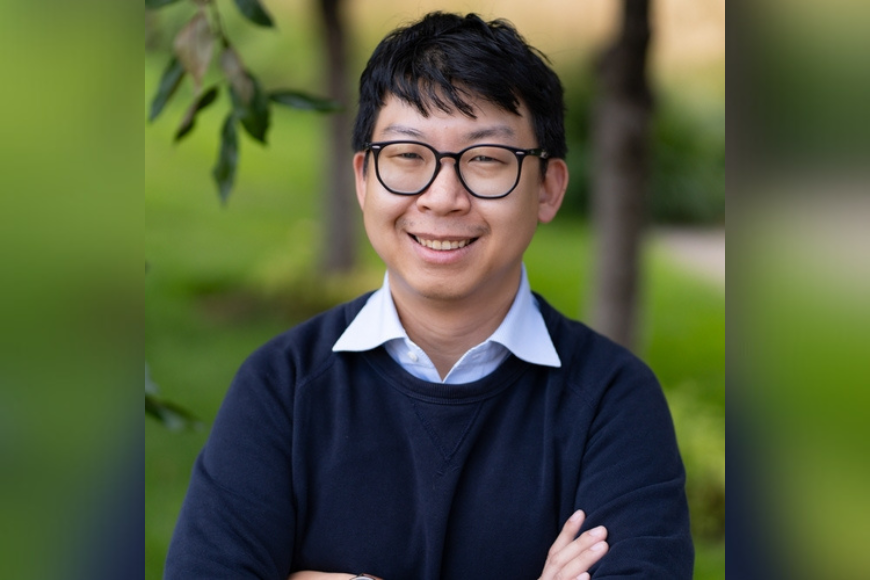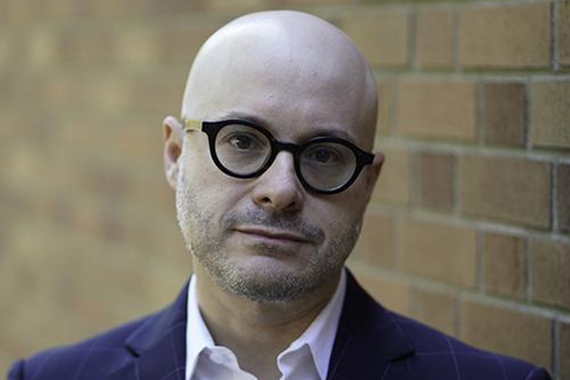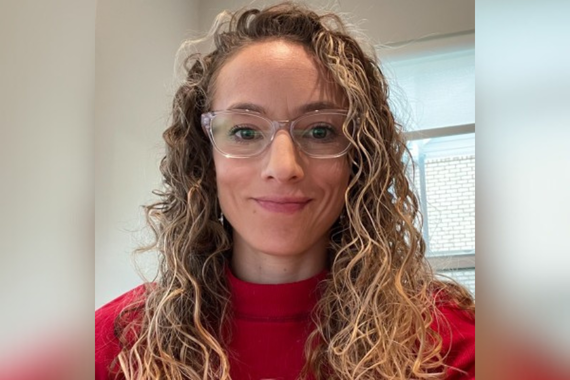Welcome Kevin Luo, New Assistant Professor of Comparative Politics
Dr. Kevin Luo joined the Department of Political Science as an assistant professor of comparative politics. Learn more about Kevin, his experiences, and his aspirations.
Tell us about yourself.
I had a pretty usual childhood. I was born in Oklahoma but spent my formative years in Canada and Taiwan, where my parents are from. After finishing high school in Taiwan, I decided to come back to the US for college and majored in political science as an undergrad at the University of Chicago. I later spent a gap year in Taiwan working as a civil servant, earned my master’s in East Asian studies at Harvard University, and completed my PhD at the University of Toronto. I also spent time at Tsinghua University and UCLA before arriving at the University of Minnesota. The consequence of this rather complicated life trajectory—besides amassing a sizable collection of public transit passes from different cities—is that I came to appreciate the value of thinking about the world through a comparative lens.
In my spare time, I enjoy cooking, watching detective shows with my partner, and following professional baseball and basketball. I was also a competitive chess player in my youth, though at 12 I realized I was not cut out to be a child prodigy; these days I mostly keep up to date with the competitive scene as a fan.
What drew you to political science?
I had a rough year as a college freshman, not really knowing what I wanted to do, but one important highlight was a “big books” course in UChicago’s core curriculum called “Power, Identity, Resistance.” There was a thrilling sense to be in dialogue with important ideas and recurring questions from Machiavelli to Marx, from Adam Smith to Arendt, and from Fanon to Foucault. I knew by then that I was acquiring some rudimentary skills in a new intellectual language, but was still unsure why I needed to speak it in the first place.
Later that year I was roped into organizing a summer “peace workshop” for high school and college students from China and Taiwan. The main takeaway from that experience was probably not the highfalutin idea that we were going to create peace across the Taiwan Strait through a series of student-run conflict resolution activities, but that the juxtaposition of different lived experiences can oftentimes help us reveal fundamental questions about how we govern ourselves and imbue our existence with political meaning. I think this was truly when I caught the poli sci bug.
More practically speaking, the workshop was also a useful exercise in taking stock of Taiwan’s fairly new struggles with democracy and China’s rapidly changing socioeconomic and political landscape since the 2000s, all against the backdrop of the intertwined modern history between the two. Both Chinese and Taiwanese politics remain the core of my research agenda today.
I dabbled in other academic fields later on, but it became clear that the constant intellectual theme was politics: the ways in which power is manifested in all walks of life, and its various permutations across different historical and national contexts.
What are your primary areas of focus?
I primarily see myself as a scholar of Chinese politics, focusing on how the historical past continues to shape and inform the political present. I am also broadly interested in contemporary East Asia, from issues related to authoritarianism and democracy, development and inequality, civil society, and increasingly security and geopolitical issues.
More generally, I am interested in discussions about the authority of the state across time and space, how different political regimes have sought to wield state power for concrete policy goals, and how state-society relations were shaped through these processes. While the state as a concept and entity has existed since premodern times, I am more focused on the emergence of the modern state in times of conflict, revolution and reform, and technological change.
What are you most excited for at the University of Minnesota?
I am truly thrilled to be a part of an intellectually vibrant department, and learning each day from colleagues whose work I have long admired even before coming here. Not only are the faculty members here invested in working on big, important research projects, they are also equally invested in pedagogy and the training of the next generation of political science scholars.
I am also excited for the opportunity to work with colleagues from the Asian and Middle Eastern Studies department as a faculty affiliate, and the larger Asian Studies community here at the University of Minnesota. The study of China and the Asia-Pacific is undoubtedly critical for the foreseeable future, and my hope for the future is that I can help to grow an interdisciplinary community so that scholars, students, and the public here in the Twin Cities can benefit from important conversations about the region.
What has been a highlight of your first semester at the University of Minnesota?
I just finished teaching the senior capstone and a freshman seminar on East Asian politics, and I am especially proud of my students’ final projects in both classes. Some of these projects range from very rigorous firsthand research in the capstone, including an ethnographic study of teacher’s unions in Senegal, a quantitative study on the Chinese bureaucracy during COVID, an analysis of suburban voting behavior in Minnesota; to very creative projects in my freshman seminar, such as a board game set during the Chinese Civil War, a children’s book on immigration policy in Japan, and a podcast comparing gender-based election quotas in South Korea and Taiwan.
I am definitely not taking credit for their creativity and research skills, but wanted to highlight their great achievements and demonstrate what kinds of projects students can pursue as an undergraduate political science major.
What is the most rewarding part of teaching?
Whenever I see things “click” for students—those eureka moments are important reminders of why I wanted this job in the first place. These moments can vary: sometimes it’s when students work their way through a challenging text and collectively build ideas off of one another. Sometimes it’s when they learn how to apply an analytical lens or a methodological language to a case study at hand. Sometimes it’s when I’m playing the role of devil’s advocate and they find clever ways to push back against me. Sometimes it’s an office hour session, when they try to piece together a research question. Observing how their curiosity can lead them to different, unexpected places, and then motivating them to put it all together—that’s an absolute joy to watch.
How do you hope to engage with students?
I think it’s first and foremost to inspire their curiosity about the larger world, either through comparisons, linkages, or counterfactuals. The second, and perhaps even more important goal, is to cultivate a systematic set of critical thinking skills, or in another sense, giving students the vocabulary and grammatical structure to converse with the world around them.
I also enjoy having a more interactive classroom setting, in which I give my students the initiative to come up with questions and think through problems. I therefore rely a lot on in-class discussion exercises, such as debates, role-playing activities, and historical simulations. The hope is that through this interactive approach, concepts and methods I have introduced during the lecture portion can leave a much more lasting impression on students.
What do you hope the next five years have in store for you?
I am working on a book project tentatively titled Land Reform and State Building in Cold War Asia, which attempts to argue how rural land reform was a pivotal moment of political transformation for many nascent political regimes during the Cold War, particularly in China and Taiwan. I am also working on various projects related to Chinese politics, particularly in thinking about how the authority of the Chinese state has historically evolved, what its implications are for Chinese society today, and broader lessons for the study of state-society relations across the world.
I also want to help mentor the next generation of undergraduate and graduate scholars here at the University of Minnesota who are interested in Chinese and East Asian studies, comparative politics, or political science in general.
Other than that, my hope is that my partner and I will be able to explore the Twin Cities together a bit more in our spare time and come out of the next few Minnesota winters unscathed.


